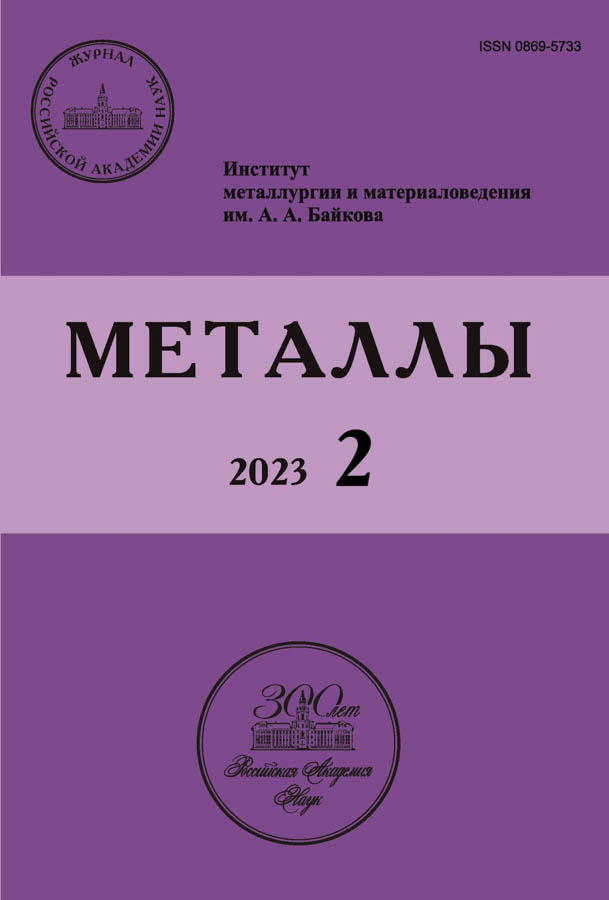INVESTIGATION OF EUDIALYTE CONCENTRATE DECOMPOSITION BY SORPTION CONVERSION IN NITRIC AND HYDROCHLORIC ACID MEDIA
- Autores: Lokshin E.P1, Tareeva O.A1, Drogobuzhskaya S.V1
-
Afiliações:
- Tananaev Institute of Chemistry - Subdivision of the Federal Research Centre "Kola Science Centre of the Russian Academy of Sciences”, Apatity, Russia
- Edição: Nº 2 (2023)
- Páginas: 85-92
- Seção: Articles
- URL: https://cardiosomatics.ru/0869-5733/article/view/654872
- DOI: https://doi.org/10.31857/S0869573323020118
- EDN: https://elibrary.ru/FYWAJL
- ID: 654872
Citar
Texto integral
Resumo
The influence of the sorption conversion conditions for the eudialyte concentrate in low-concentration nitric and hydrochloric acid solutions (concentration and consumption of acid, temperature and duration of the process, sorbent consumption) on the valuable metals extraction efficiency (zirconium, hafnium, niobium, rare earth elements, titanium, manganese) into sulphocationite was studied. Optimal conditions for the process have been determined. It has been shown that sorption conversion in nitric acid solutions is more effective for separating valuable components from the silica component of eudialyte concentrate compared to both the traditional method decomposition by nitric acid and the method of sorption conversion in sulfuric and hydrochloric acid environments. The reasons for the loss of valuable metals and the behavior of natural radionuclides are discussed.
Sobre autores
E. Lokshin
Tananaev Institute of Chemistry - Subdivision of the Federal Research Centre "Kola Science Centre of the Russian Academy of Sciences”, Apatity, Russia
Email: lokshin.ep@gmail.com
O. Tareeva
Tananaev Institute of Chemistry - Subdivision of the Federal Research Centre "Kola Science Centre of the Russian Academy of Sciences”, Apatity, Russia
Email: lokshin.ep@gmail.com
S. Drogobuzhskaya
Tananaev Institute of Chemistry - Subdivision of the Federal Research Centre "Kola Science Centre of the Russian Academy of Sciences”, Apatity, Russia
Autor responsável pela correspondência
Email: lokshin.ep@gmail.com
Bibliografia
- Локшин, Э.П. Сорбционная конверсия эвдиалитового концентрата в азотнокислом растворе / Э.П. Локшин, О.А. Тареева // Металлы. 2020. №5. С.39-45.
- Lokshin E.P., Tareeva O.A. "Decomposition of an eudialyte concentrate with nitric acid by sorption conversion".Russian Metallurgy (Metally), 2020. №9. P.964-970. DOI: 10/1134/S0036029520090086.
- Назаренко, В.А. Гидролиз ионов металлов в разбавленных растворах / В.А. Назаренко, В.П. Антонович, Е.М. Невская. - М.: Атомиздат, 1979. 192 с.
- Курбатов, Д.Н. О растворимости гидроокиси ниобия в минеральных кислотах / Д.Н. Курбатов, Н.В. Деменов // ЖПХ. 1956. Т.29. №6. С.944, 945.
- Локшин, Э.П. О потерях редких элементов при кислотной переработке эвдиалитового концентрата / Э.П. Локшин, О.А. Тареева, И.Р. Елизарова // Химия в интересах устойчивого развития. 2018. №2. С.167-173. doi: 10.15372/KhUR20180207.
- Лапицкий, А.В. Исследование растворяющего действия воды и минеральных кислот на пятиокиси ниобия и тантала / А.В. Лапицкий, Л.А. Поспелова, Е.П. Артамонова // ЖНХ. 1956. Т.1. №4. С.650-659.
- Локшин, Э.П. Сорбционная конверсия эвдиалитового концентрата в сернокислой среде / Э.П. Локшин, О.А. Тареева, С.В. Дрогобужская // Химия в интересах устойчивого развития. 2022. Т.30. №3. С.274-280. doi: 10.15372/KhUR2022381.
Arquivos suplementares










